If you’re a health nerd like me, you know the recommended nutritional guidelines are always changing.
Remember when eggs were bad?
Now it’s okay to eat them again.

I’ll admit, as a nurse, I’ve always been a little leery of vitamin supplements.
We all have friends who swear by their vitamin routine.
Our bodies need both types to function properly.
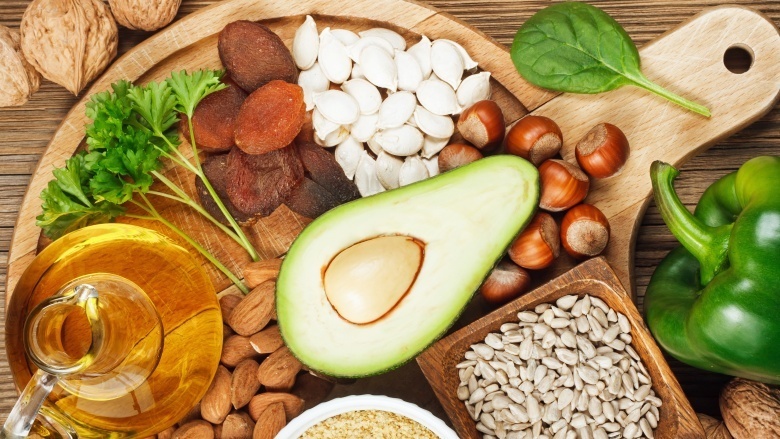
Fat soluble vitaminsneed body fat to be absorbed and used by our organs.
Vitamin A, vitamin E, and carotenoids are all fat soluble vitamins.
Because these vitamins rely on fats to be used, we must eat a diet full of healthy fats.
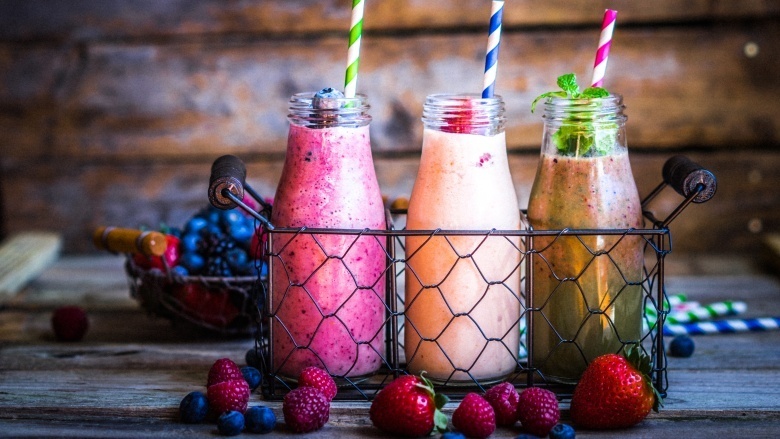
“They can also become toxic, as they are stored in fatty tissue.”
Common water soluble vitamins include folate, vitamin C, and the B vitamins.
Where should we get our vitamins?

Our experts agree that the best source of vitamins is our diet.
Whole, fresh, unprocessed foods provide the vitamins our bodies crave.
Board certified rehabilitation specialistDr.
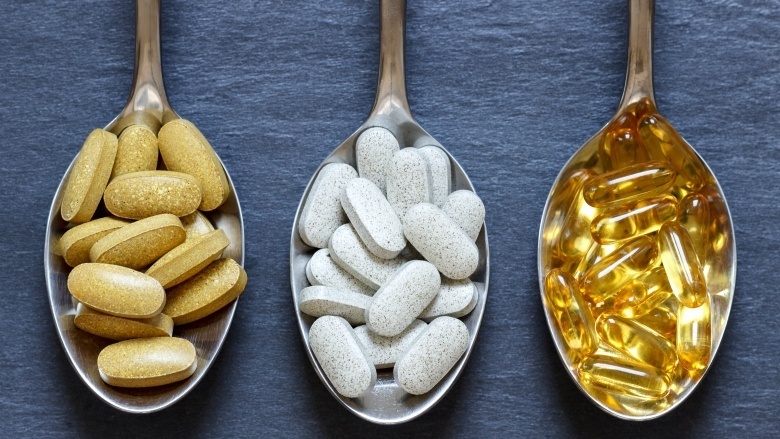
Scott Schreiberfocuses on obtaining vitamins from whole foods.
“Whole foods are the best source of vitamins and minerals,” he tells us.
It’s also important to remember that heat can alter the makeup of the vitamins in food.

“So mixing up raw and cooked foods throughout the day is ideal.”
Why is food not enough?
We don’t eat that way!

We’re also not getting enough iron.
This is especially true for premenopausal women.
The report also found that we’re taking in too much sodium and saturated fat.
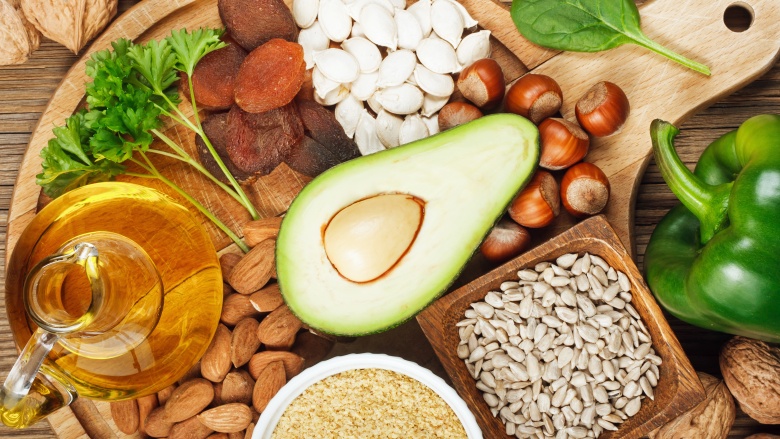
Registered dietitian Emily Braaten recommends trying to obtain as many vitamins from our diets as possible.
Why take a supplement?
“Therefore a need to supplement while implementing small and incremental healthy changes may be required.”

The following slides provide details on certain crucial vitamins you better consume every day.
After you get through the list of vitamins, keep reading!
Unfortunately when it comes to vitamins, you really can have too much of a good thing.
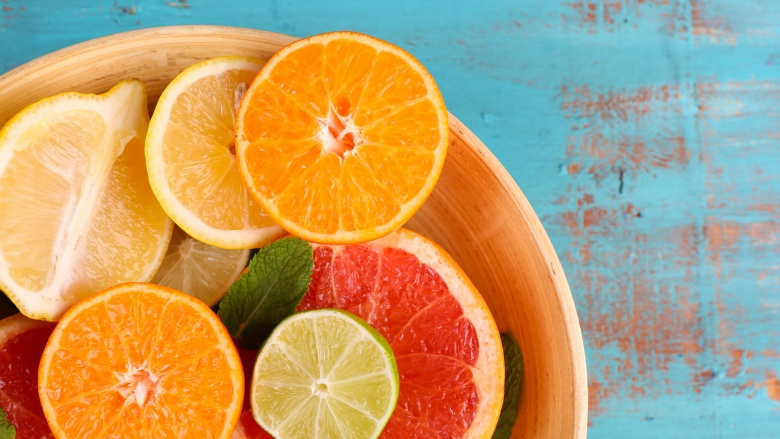
A separate study of women found that a daily supplement was linked to an increased risk for skin cancer.
Taking vitamin A supplements with beta-carotene has been proven to increase therisk of lung cancerin study participants.
Calcium supplements have not been proven to improve bone density.

Make a plan with your doctor or nutritionist, and you’ll be feeling good.
Vitamin A supports ahealthy immune system, reproductive system, cell health, and vision.
Because vitamin A helps produce healthy cells, it also affects our vital organs like the heart and lungs.
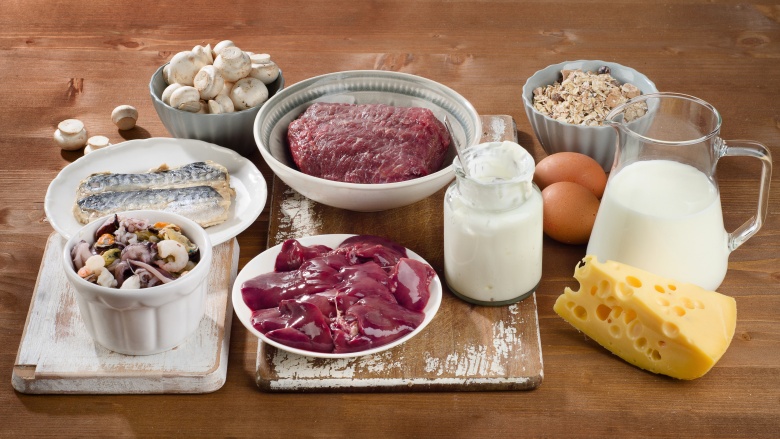
Some research has even linked taking vitamin A with improvingmeasles and some types of cancer.
Vitamin Acomes in two forms, and we need to get them both from our diets.
The most important punch in of provitamin A carotenoid is beta-carotene.

Mmm one order of algae and fungi to go yo!
Most multivitamins contain vitamin A, and women should aim for about770 microgramsof vitamin A per day.
Its antioxidant properties protect our cells from damaging free radicals.

Vitamin E also supports our immune systems.
We can get vitamin E from our diets, as well as supplements.
While vitamin E is available as supplements, we have to be careful to avoidhigh doses.
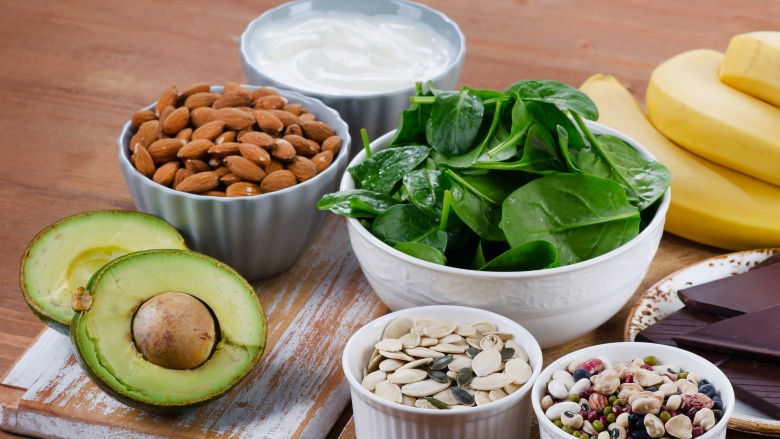
Some research has even linked high-dose vitamin E with an increased risk of death from any cause.
Aim to get this vitamin from your diet or a multivitamin.
Folic acid decreases the amount ofhomocysteinein our blood.
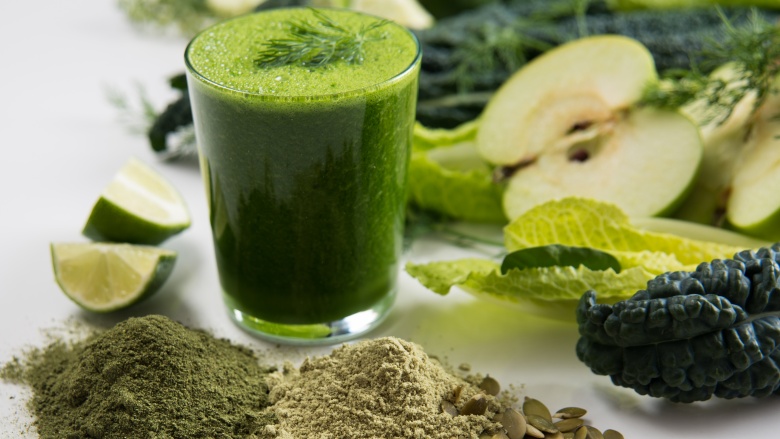
Folic acid is also linked to improving ourcognitive abilities, psychiatric illness, and cardiovascular health.
Some of the best sources include spinach, asparagus, and brussel sprouts.
Break out the cheese and bacon we’re cooking up some delicious veggies tonight!
While vitamin C may not prevent that cold, it may at leastshorten it.
It’s also vital to forming collagen.Collagenis that compound in your skin that keeps it elastic and young-looking.
We also need collagen for our bones, cartilage, muscles, and blood vessels.
Like vitamin E, vitamin C also contains powerfulantioxidants.
Unlikeother animals, we humans can’t make vitamin C, so we need to take it in everyday.
Oranges are of course great sources of vitamin C, but so are othercitrus fruitslike grapefruits and lemons.
Vitamin B6
Feeling blue or just off?
double-check you’re getting enough vitamin B6.
Vitamin B6 helps the body makeserotonin and norepinephrine, which are chemicals that help the brain send signals.
It also aids in ourcognitive development, so don’t forget to take it.
Vitamin B6 helps form myelin around our nerves, which helps our brains send signals throughout our bodies.
Not having enough vitamin B6 can lead to problems in the nerves, skin, and circulation.
It’shighestin fish, beef liver, organ meats, potatoes, and starchy vegetables.
It is also included in vitamin B supplements.
One group who should look into a vitamin B12 supplements arevegetarians.
This is why it can be tricky for strict vegetarians and vegans to get enough of this vitamin.
It’s usually not found in plant foods, but now somecerealshave been fortified with vitamin B12.
Those with low levels of vitamin B12 will noticefevers and sweating.
Vitamin D
Our bodies need vitamin D forhealthy bone growth.
A vitamin D deficiency will lead to weak, brittle bones and pain.
Unlike the other vitamins in this list, vitamin D isn’t so easy to get from food.
All you need is10 minutes outdoorseach day to get your fix.
Some foods like milk and cereals are now fortified with vitamin D as well.
The easiest way to get your vitamin D is with a daily fish oil supplement.
Calcium
Got milk?
Calcium has been linked toprotecting against cancer, diabetes, and high blood pressure.
It also helps our bodies’nerves and muscleswork properly.
Our bodies need to receive calcium everyday to protect our bones.
This keeps our blood safe and working, but weakens our bones.
Our bodies need a sufficient amount of magnesium to keep ourmuscles and nerves working.
Magnesium also helps with controlling blood sugar levels and blood pressure.
It’s relatively easy to take in magnesium from our diets.
Some foods that arerich in magnesiuminclude green leafy vegetables, nuts, seeds, and whole grains.
Magnesium has also been added to fortified cereals and bottled water.
When we eat magnesium-rich foods, our bodies will absorb about30 to 40 percent of the mineral.
We can also get magnesium from supplements.
Adults should aim for about270 to 400 milligramsper day.
Iron
Our bodies need to receive iron everyday to be able to make enoughnew red blood cells.
Our red blood cells are responsible for bringingfresh oxygen all over the body.
When we don’t have enough iron, we can develop anemia.
Not having enough iron can leave us feeling tired and short of breath.
It can even lead to learning problems and infections.
Women should aim for 10 to 15 milligrams of iron per day.